The Coroner’s inquiry
All sudden, unexplained, violent and unnatural deaths must by law be reported to a Coroner. No doctor may certify a death which is due directly or indirectly to any unnatural cause. The Coroner’s inquiry is concerned with establishing whether or not the death was due to natural or unnatural causes.
If death is due to unnatural causes then an inquest must be held by law. There is a legal duty placed on a registered medical practitioner, amongst others, to report such deaths to the Coroner. The death may, however, be reported to a member of the Gárda Síochána not below the rank of sergeant, who will then notify the Coroner.
At common law, any person may notify the Coroner of the circumstances of a particular death.
Reportable Deaths
The general rule is that any death which is due directly or indirectly to any unnatural cause must be reported to the Coroner. It is recommended that if a doctor has any doubt in the matter, he or she should email the District Coroner.
The fact that a death is reported to the Coroner, or that the doctor wishes to seek the advice of a Coroner, does not mean that an autopsy will always be required. The Coroner is available for consultation by phone outside office hours. However, except when the matter is urgent, cases should normally be reported at a reasonable time, usually before 11p.m. or after 8a.m.
Procedure
Based on the information available, the Coroner will decide whether:
• A death can be certified without any further action;
• A post mortem is required to establish further information;
• A post mortem and an inquest are required.
If a Coroner directs a post mortem examination, the next of kin may be asked to formally identify the body. This could either be to a member of An Garda Síochána at the location where the death occurred or later at the mortuary before the examination is carried out.
In some cases, a Coroner must hold an Inquest.
An Garda Síochána assists the Coroner in preparation for the inquest. They arrange the formal identification of the person who has died.
The Gardaí need to collect information for the Coroner. The fact that relatives may be met at the hospital by a uniformed Garda or the Gardaí may call to their home to take a statement does not mean that the death is regarded as suspicious. The Gardaí are usually assisting the Coroner in establishing the identity of the person who has died, and where, how and when their death occurred.
Inquest With or Without a Jury
The inquest will be held before the Coroner with or without a jury. A jury is required to be empanelled at the inquest in certain circumstances which are laid down by law. These include where death was due to homicide, or occurred in prison, or resulted from an accident at work. A jury is also necessary if a death occurred in circumstances, the continuance or possible recurrence of which might be prejudicial to the health or safety of the public or any section of the public.
Giving Evidence
A witness must attend the inquest if requested to do so by the Coroner. In normal circumstances, a formal Witness Summons may issue.
During the course of the inquest, the witness will give evidence on oath or affirmation. The Coroner will hear the evidence, and then take the witness through the factual statement and ask questions designed to clarify any matter.
When the Coroner has concluded their examination, any properly interested person, or a lawyer acting on their behalf, may examine the witness. It is important for witnesses to understand that an inquest is not a trial. It is a fact-finding inquiry. Questions of civil or criminal liability cannot be considered or investigated at the inquest and no person can be blamed or exonerated.
Disclaimer: The contents of these pages are provided as an information guide only. They are intended to enhance public access to information about the coroners service. While every effort is made in preparing material for publication, no responsibility is accepted by or on behalf of the State for any errors, omissions or misleading statements on these pages or any site to which these pages connect. Although every effort is made to the reliability of listed sites, this cannot be taken as an endorsement of these sites.

